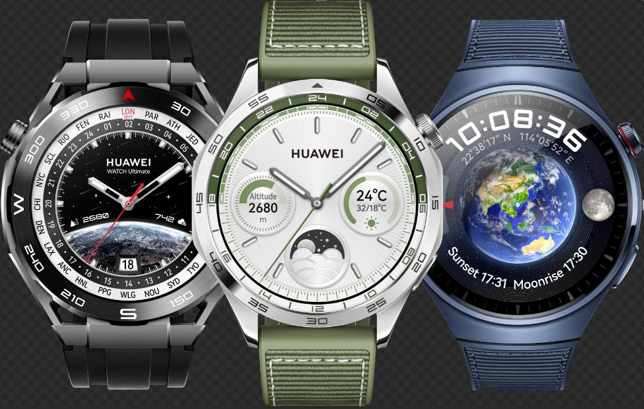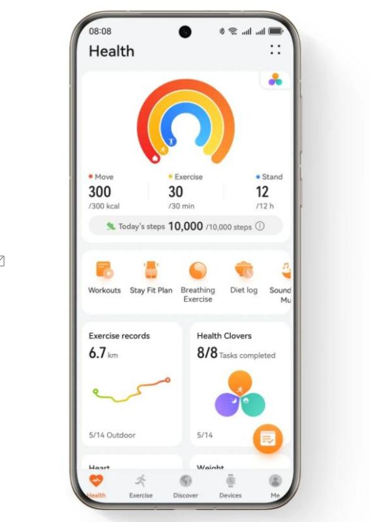Wrist-Worn Health Revolution Via Smart Sensor Tech

Wrist-worn devices are changing how we manage health by offering real-time insights and promoting wellness. From tracking vital health metrics to integrating with our digital lives, these smart sensors bring convenience and precision. The shift from simple activity trackers to intelligent gadgets is transforming personal health into a data-driven experience, empowering individuals with actionable insights. Discover how these advancements contribute to a healthier lifestyle and the future of preventive healthcare.
The Rise Of Wrist-Worn Health Devices
Evolution From Simple Trackers To Smartwatches
Initially, wearable technology consisted of basic pedometers and fitness bands. These devices primarily counted steps, providing a glimpse into our daily activity levels. Over time, technological advancements transformed these simple gadgets into sophisticated smartwatches. Modern smartwatches now house an array of sensors capable of monitoring various health metrics, seamlessly integrating with smartphones, and providing comprehensive health insights, turning wrists into health hubs.
Growing Popularity Among Health-Conscious Users
The increasing focus on health and fitness has fueled the demand for wrist-worn devices. Health-conscious individuals utilize these gadgets to track their physical activities and optimize workouts. With accessible real-time data, users can make informed decisions about their health and lifestyle. The social features and gamification offered by many smart devices enhance motivation, making wellness a more engaging and communal pursuit.
Role of Smart Sensors in Daily Wellness
Smart sensors embedded in wrist-worn devices actively contribute to everyday wellness by automatically capturing critical health data. They facilitate seamless tracking of daily activities, heart rate fluctuations, and even stress levels without requiring manual input. This data empowers users to understand their body’s responses better and encourages healthy habits, such as consistent sleep patterns and mindful breathing, bolstering long-term health management strategies.
See also: Stay Protected and Stylish with FLOP Industries’ Fishing Hoodies
Key Health Metrics Monitored By Smart Sensors
Heart Rate, ECG, and Blood Pressure Tracking
Smart wristwear offers continuous heart rate monitoring, notifying users of unusual patterns. Advanced devices include ECG features, detecting atrial fibrillation and other irregularities. Some gadgets also allow estimation of blood pressure through sensor-driven technology, offering a convenient way to keep cardiovascular health in check. This instant access prompts timely interventions and maintains a crucial line of communication between users and healthcare providers.
Sleep Monitoring and Stress Management
Wrist-worn devices enhance well-being by analyzing sleep patterns, including duration and quality. By identifying disruptions and sleep stages, users gain insights to improve rest. Stress management becomes achievable with sensors identifying physiological indicators of stress, suggesting personalized breathing exercises. This dual focus empowers individuals to achieve a balanced lifestyle, emphasizing relaxation and recovery to complement daily exertions.
Fitness, Activity, and Calorie Insights
Fitness enthusiasts benefit immensely from the in-depth activity data provided by smart sensors. They measure steps, calculate calorie expenditure, and record specific workouts. Additionally, these devices deliver feedback on activity intensity, helping fine-tune fitness goals. Enhanced with AI capabilities, they offer tailored guidance, motivating users to push their limits safely and ensure that lifestyle changes persist.
How Smartwatch Sensors Empower Preventive Healthcare
Early Detection Of Health Risks
Smartwatch sensors serve as early-warning systems by continuously monitoring critical health parameters. They identify anomalies and detect potential issues before they evolve into significant health threats, initiating timely medical consultation. By providing alerts and health nudges, these devices activate proactive decision-making and enable users to take charge of their health, reducing reliance on reactive healthcare practices.
Personalized Health Recommendations
Leveraging machine learning, wrist-worn tech crafts unique health recommendations based on collected data. This personalization extends to exercise routines, dietary adjustments, and lifestyle changes attuned to individual needs. Making informed suggestions, the device evolves into a digital health coach, promoting sustainable wellness habits and meeting broader health objectives with precision.
Integration With Telemedicine And Health Apps
Smart devices integrate smoothly with telemedicine platforms, allowing continuous data sharing with healthcare practitioners. This connectivity facilitates remote monitoring and consultation, enabling convenient healthcare access. Health apps further enhance this synergy by offering a platform for communication and record-keeping, aligning tech-driven insights with professional healthcare to deliver a holistic care continuum.

Challenges and Future of Wrist-Worn Health Tech
Accuracy, Privacy, and Data Security Concerns
Despite advances, wrist-worn health tech faces challenges in ensuring data accuracy. Variations in data capture may skew health metrics, affecting reliability. Privacy concerns are prominent, as sensitive health data is vulnerable to breaches. Ensuring stringent data security measures, like robust encryption, is essential to foster user trust and safeguard personal information.
Expanding Role Of AI And Machine Learning
AI and machine learning are pivotal in augmenting the functionality of wrist-worn devices. These technologies enable predictive analytics, refine health recommendations, and enhance user engagement. They continuously learn from user data, providing more personalized insights. As their role expands, AI-driven features promise to elevate precision and anticipation in health monitoring.
Future Innovations In Wearable Health Sensors
The future holds promising advancements in sensor technology, aiming to extend the range of measurable health metrics. Innovations may include non-invasive glucose monitoring, hydration levels, and enhanced mental health indicators. These enhancements will allow users to track a broader spectrum of conditions, fostering greater autonomy in managing personal health and well-being.
Conclusion
The transformation of wrist-worn devices into comprehensive health-monitoring tools highlights the synergy between technology and personal wellness. With the integration of smart sensors, users are equipped to adopt proactive health strategies, facilitating early risk detection and personalized guidance. In this evolving landscape, the watch gt6 pro smartwatch price often becomes a reference point for individuals comparing advanced features and long-term value. Overcoming current challenges will further amplify their role in healthcare, ensuring that individuals maintain a watchful eye on their health. The future beckons with continuous innovation and enriched user experiences.



